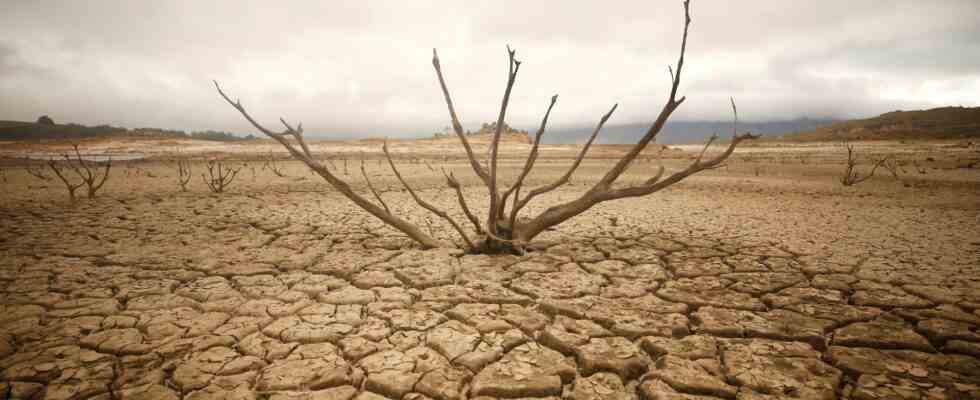Status: 06/30/2022 08:08 a.m
Day one was overshadowed by Russia’s aggression, today the NATO summit is looking south. Many African countries are already fighting terrorism and hunger. And climate change will only exacerbate the problems.
At the end of the NATO summit in Madrid, the focus is on the fight against terrorism. In the Spanish capital, the main focus should be on dangers emanating from areas south of the alliance. The terrorist networks al-Qaeda, the so-called “Islamic State” and the radical Islamic al-Shabaab militia are active there, for example.
The food crisis triggered by the Ukraine war and the increasing influence of Russia and China, for example on Africa, are also on the agenda. In particular, host Spain had insisted that the meeting also deal with the southern neighborhood. Before the meeting, Spanish Defense Minister Margarita Robles stressed that the war against Ukraine is also affecting countries south of the alliance, such as Somalia, where famine is now rife. In addition, Russia is increasingly present in some countries of the Sahel zone.
“The greatest danger is the climate crisis”
In addition, climate change is exacerbating many problems. Federal Foreign Minister Annalena Baerbock is therefore calling on NATO partners to broaden their perspective: “Human security is more than the military. The greatest danger is the climate crisis for this and the next century. And we are also facing up to this new reality with the strategic concept. “
In addition to the Green politician, it is particularly important for the USA to include the consequences of global climate change as a national security risk in the new strategy paper. NATO Secretary General Jens Stoltenberg also described climate change as a new challenge for the western defense alliance:
From the far north to the Sahel zone – climate change intensifies the crises. More and more extreme weather is destroying cities and communities and fueling tensions and conflicts. Climate change plays a role in our security, and therefore in NATO.
Climate refugees, conflicts over food and water – the consequences of climate change are manifold. That is why the NATO allies are determined to set the gold standard in order to cope with the security policy effects of global warming, said the Secretary General: “For NATO this means three things: increasing our understanding, adapting the alliance to the new circumstances and our to reduce their own emissions.”
Climate neutral by 2050?
Fighter planes consume dozens of liters of kerosene per minute, so it’s not exactly easy for NATO to save energy. Nevertheless, climate targets for the alliance were agreed at the summit, according to Stoltenberg: “Our goal is to reduce our greenhouse gas emissions by at least 45 percent by 2030. And we want to be climate-neutral by 2050. We can’t make a decision between being environmentally friendly or being strong. We have to be both.”
More renewable energies and more synthetic fuels, as well as vehicles that do not run on fossil fuels, are some of the ways NATO wants to achieve greater energy independence in the future.
Conversations about refugees
In addition to the climate crisis, NATO is also dealing with migration movements in the so-called Global South. Host country Spain in particular, but also Italy and Greece, feel that their national security is threatened by the stream of refugees on their southern borders.
That is why the heads of state and government of the western defense alliance want to sit down with representatives of the Maghreb countries today to find solutions to the conflict.
With material by Claudia Sarre, ARD-Studio Washington, currently Madrid
New NATO strategy – climate change and other global threats
Claudia Sarre, ARD Washington, currently Madrid, 6/30/2022 6:54 a.m

